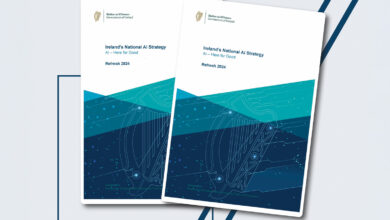A new national body funds Ireland’s research and innovation

Amid the amalgamation of the functions and activities of Science Foundation Ireland (SFI) and the Irish Research Council (IRC), the previous government has established a new national body dedicated to funding research and innovation in the State.
In June 2024, the Research and Innovation Act was signed into law, established the new agency, Taighde Éireann (Research Ireland), which will fund research and innovation in Ireland’s arts, engineering, humanities, mathematics, science, social sciences and technology sectors.
Former Minister for Further and Higher Education, Research, Innovation and Science Patrick O’Donovan TD, says the establishment of Taighde Éireann “will enhance our capacity to address the issues Irish society is facing, in particular climate change and the digital transition”.
The creation of new national body has been hailed as the “keystone” by the Department of Further and Higher Education, Research, Innovation and Science, of the Government’s Impact 2030: Ireland’s Research and Innovation Strategy, which according to the Department will put research and innovation “at the heart of addressing Ireland’s social, economic and environmental challenges”.
O’Donovan states: “The establishment of this new agency is a real opportunity to develop an enhanced new approach, fully integrating all aspects of the research and innovation ecosystem.”
The Research and Innovation Act also instituted amendments to the Higher Education Authority Act 2022 which provided for the transfer of certain members of staff and records, assets and liabilities relating tÚdarás um Ard-Oideachas to Taighde Éireann.
Reception to the Act
Responses to the Government’s Research and Innovation Act have ranged from positive, to several organisations and sectorial experts arguing that the Government’s establishment of Taighde Éireann showcases nothing but an “unmitigated lack of ambition”, according to the Irish Federation of University Teachers (IFUT), but also stated nothing in the legislation can be “deemed distasteful to IFUT”.
In 2023, the IFUT participated in a pre-legislative scrutiny of the research and innovation bill 2023 (as it was titled at the time), meeting with the joint committee of Education, Further and Higher Education, Research, Innovation and Science.
The IFUT’s statement articulated the need for “evidence based research in the advent of Trumpian politics, Brexit and mass campaigns of disinformation”. Both the Irish Congress of Trade Unions (ICTU) and the IFUT submissions to the joint committee focused on the opportunities contained within the legislation.
In a joint statement, the ICTU and IFUT said: “We very much welcomed what was being described by those in favour of adopting legislation of this nature as being the granting or achieving of ‘parity of esteem’ between research on STEM matter, arts and humanities and social science, but we stress that the legislation needs to be very clear in this point.”
However, the launch of Taighde Éireann has gotten off to a turbulent start. The agency is launching with an interim CEO after the inaugural CEO-designate was replaced in light of recent bullying allegations.
Underfunded
The Research and Innovation Act 2024 aims to:
- Promote the attainment and maintenance of excellence in the standard and quality of research and innovation.
- Support the undertaking of research and innovation in all fields of activity and disciplines by researchers with different levels of knowledge, experience and specialist skills in such fields or disciplines.
- Promote and support the contribution made by research and innovation to economic, social, cultural and environmental development and sustainability in the State.
However, according to the IFUT, supporting the need for increased research funding in Ireland is imperative to catch up with the EU average research expenditure of 2.32 per cent, with the State’s current spend at 1.23 per cent of GDP.
Although Ireland has the second highest GDP per capita in the EU, Eurostat figures show the State’s 2022 Budget allocation to research and development was just 0.21 per cent, the second lowest in the EU.
Moreover, figures showcase that the State has an overreliance on the private sector plugging the gap, with private contractors accounting for 80 per cent of all expenditure on research and development in 2021, which is 14 per cent more than the EU average (66 per cent).
Part of Research Ireland’s remit is to work with two of Ireland’s economic development agencies on research to help industry. Deirdre Lillis, assistant secretary at the Department of Further and Higher Education, Research, Innovation and Science states the agency “will see how to best balance applied and basic research funding as it reviews SFI and IRC’s portfolios”.
The European Commission has blamed low investment in research and development for continent’s economic stagnation, and for decades has urged member states to increase spending to boost competitiveness.
Furthermore, Impact 2030 wants to increase the investment in research by companies and SMEs. Irish SMEs were successful during Horizon 2020, netting over €300 million from nearly 5,000 applications.
However, delivering on this Impact 2030 objective will require more money from the national coffer, and the question of funding looms large over the new agency. Ireland’s researchers have long complained about underinvestment. A recent survey by the Irish Universities Association (IUA) found that over half of its members’ equipment and research infrastructures are over a decade old.
“It is really dire in terms of the investment levels, particularly in research infrastructure,” says Laura Keating, director of research and innovation at IUA. “The Research and Innovation Act creating Research Ireland’s wider scope means new funding is critical as many more sections will be in competition. The intention of the bill, was that nobody would lose out, but the problem is the pot did not get bigger.”





